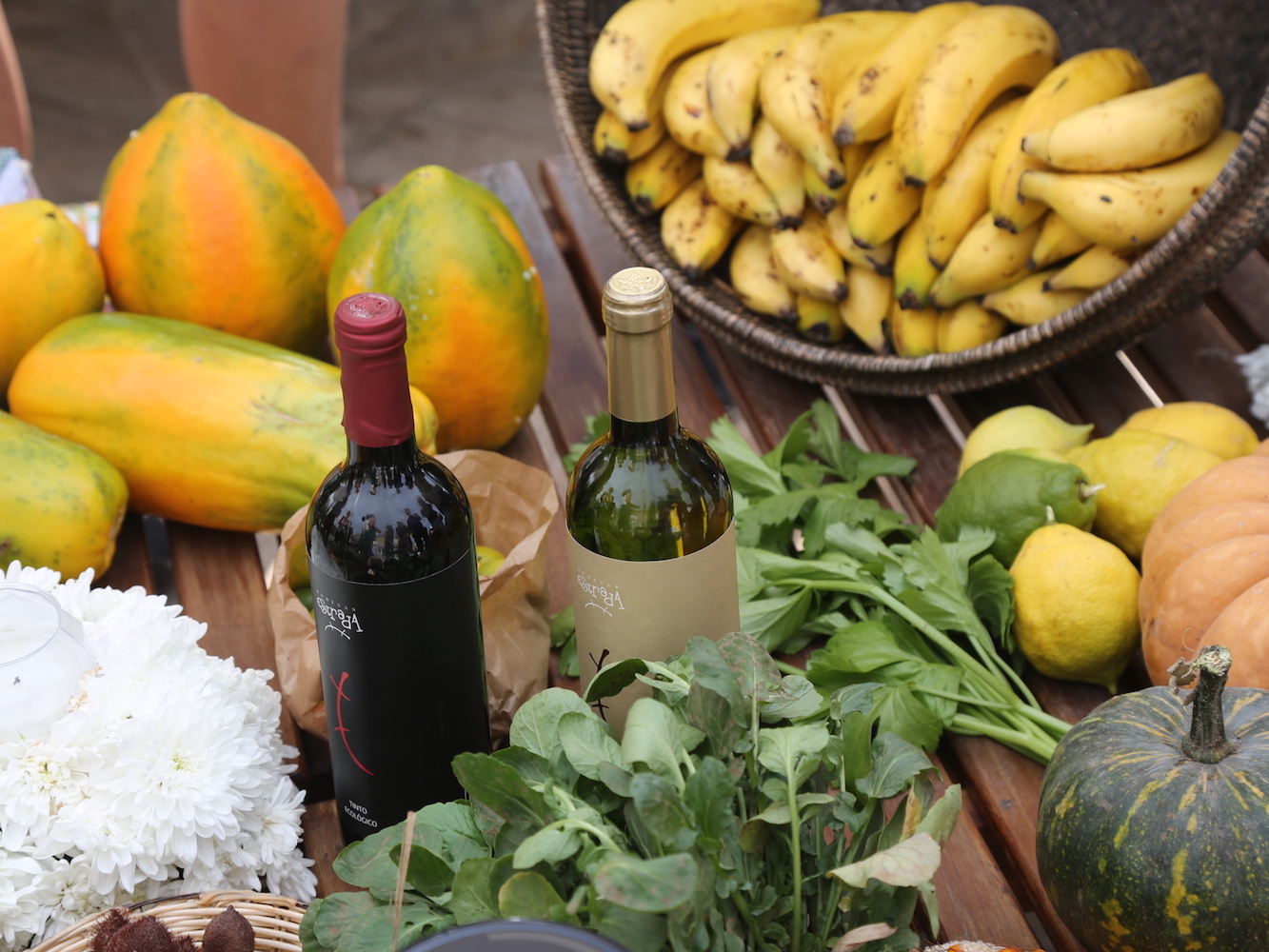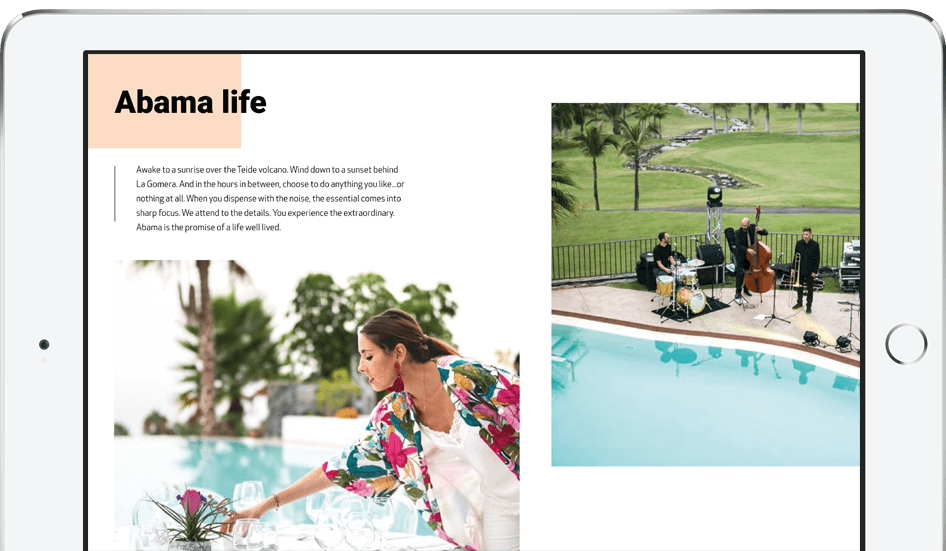
A forerunner in agricultural techniques for the production of organic fruit in Tenerife, La Calabacera counts Michelin restaurants, 5-star hotels, local markets and individuals looking for the best natural ingredients among its many customers. This organic farm has worked closely with us to promote healthy habits among our guests and owners, preparing recipes and participating in activities during our Abama Wellness Weeks. Today, we take you behind the scenes of this thriving local business to speak with La Calabacera’s owner, Dulce Acevedo, about the establishment’s history.
It has been 18 years since Acevedo and her husband, José Luis García Estrada, decided to commit themselves to organic production. And though, at the time, little information existed on the subject, Acevedo was determined to move forward. “In 2005, if you searched for ‘organic bananas’ on the Internet, there were four articles. Not even the technical people knew much about it. But once we decided to make the leap to organic, I felt like my path was clear. I left my fear behind and started taking steps forward to learn and improve,” explains Acevedo.
Her knowledge of chemistry, thanks to her years of studies for a degree in Pharmacology, was a good base for her work, but she insists that trial and error were essential to the process. In fact, she goes even further. When asked about the success of La Calabacera, Acevedo attributes it to two factors: observation – being physically in the field to see what’s happening – and proactivity – never allowing an infestation to overwhelm you. Her work, certified by the Canary Islands Institute of Agrifood Quality, is not only reflected in the crops, which are 100% chemical-free, but also in her love of and dedication to each of her projects.
The keys to success
The farm, which has been in the family since 1912, has been subjected to the evolution of agricultural techniques in each era since then. So transforming it into an area free of chemical fertilizers and pesticides included an important purification process. "When you stop putting poison in the soil,” says Acevedo, “the first three years are very hard. But the soil gradually clears and finds its balance again."
The present-day stability of La Calabacera has allowed them to develop an ecosystem in which bananas grow side by side with citrus fruit, vegetables and subtropical fruit, with the same irrigation system. “The bananas consume more water, of course, but the entire system is based on drip irrigation, which guarantees that very little water is lost. In that sense, we are very sustainable. We make sure the water is totally efficient and that it doesn’t percolate: that is, go beyond 70 cm deep, where there are no longer any roots.”
Employing natural fertilizers made from manure and pruned plants, recycling their own and neighbors' waste, and using all the resources available to them, La Calabacera is closely linked to its community, and a prime example of a functioning circular economy. “We’re already living in the future, working in partnership with other companies in the area to achieve more sustainable processes. For example, Abama Resort provides clients, and I provide good ingredients so they can eat healthy food. But in addition, when we need greens for the compost, we go get the resort’s grass cuttings and its pruning waste.” It’s a full cycle from which everyone benefits.
A bit of everything
Of the 150,000 m2 of land cultivated by La Calabacera, 130,000 m2 are dedicated to growing bananas, but they also produce papaya, mango, sapodilla, carambola, and numerous other tropical fruits that may surprise you with their texture, flavor and aroma.
"Organic fruit is not only much healthier, but just by looking at it, you can tell that it’s different." Acevedo says a tour of her farm is a "voyage of the senses" because the fruit have a consistent texture, intense aromas, and strong flavor. In addition, once harvested, they last far longer because of their lower water and greater nitrite and nitrate concentration.
With the promise of delivering “direct from the land to your table,” La Calabacera produces about 700,000 kilos of bananas a year, 50,000 kilos of papaya, and a wide range of other organic fruit and vegetables in smaller quantities that will make a healthy meal shine. Under the Bodegas Estrada seal, the estate also produces a dry rosé wine with Marmajuelo grapes grown on the premises and a red wine with Tintilla grapes from La Palma. Sugar cane, coffee and eggs hatched by the farm’s hens round out La Calabacera’s current offer, but in the future Acevedo would like to close the sustainability circle by beginning to fatten calves and use the manure produced by the animals to enrich the organic fertilizer compost.
Proud of having expanded the land she received as an inheritance, and of the success of La Calabacera as a purely organic business, Acevedo and her husband remain hands-on, personally bring their products to customers and never tiring of explaining the advantages of organic fruit, both for the land and for consumers' wellness. “I always say,” she concludes, “that we cultivate soil, not plants. If you have good soil, whatever you grow will be good.”







